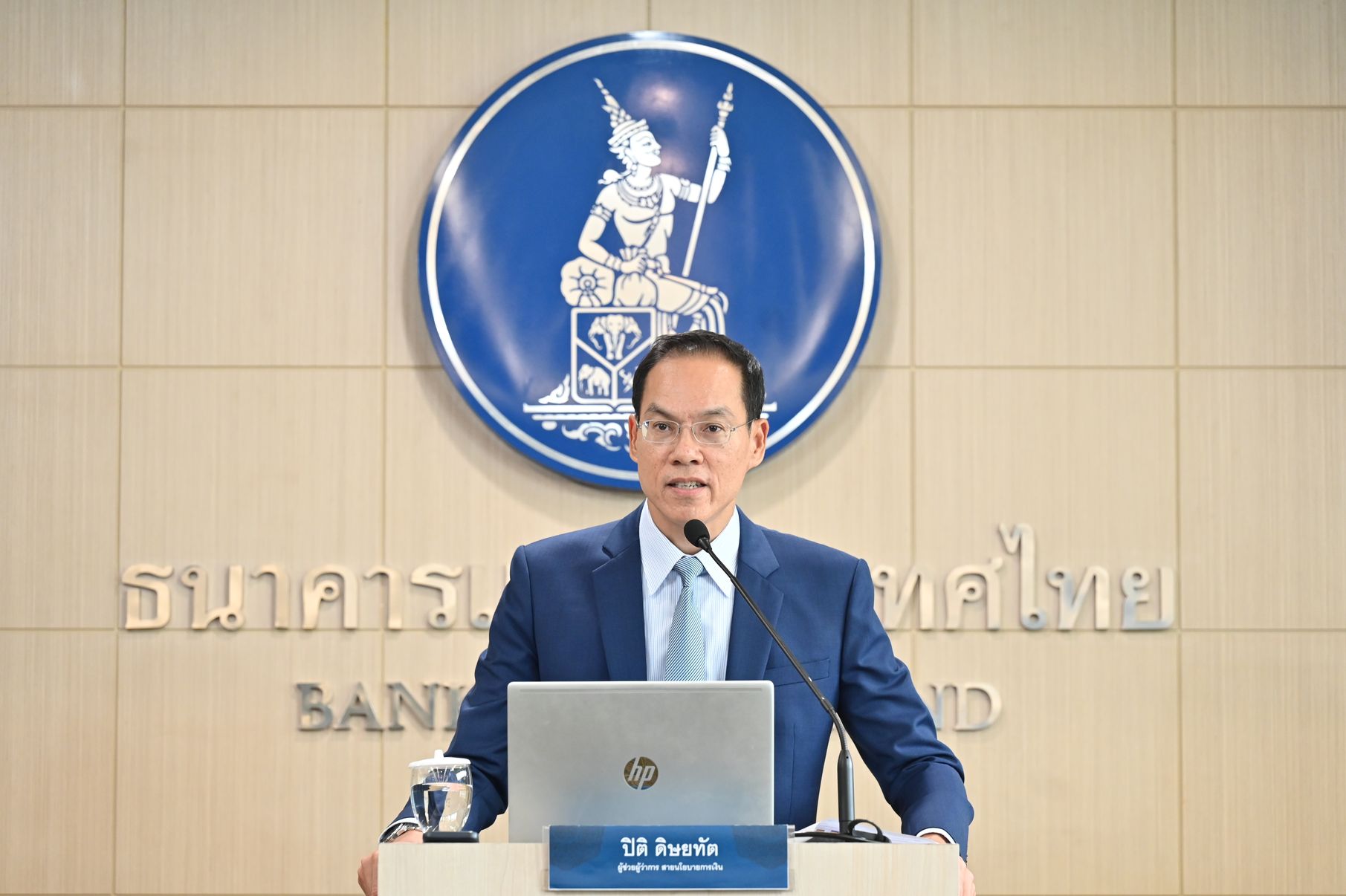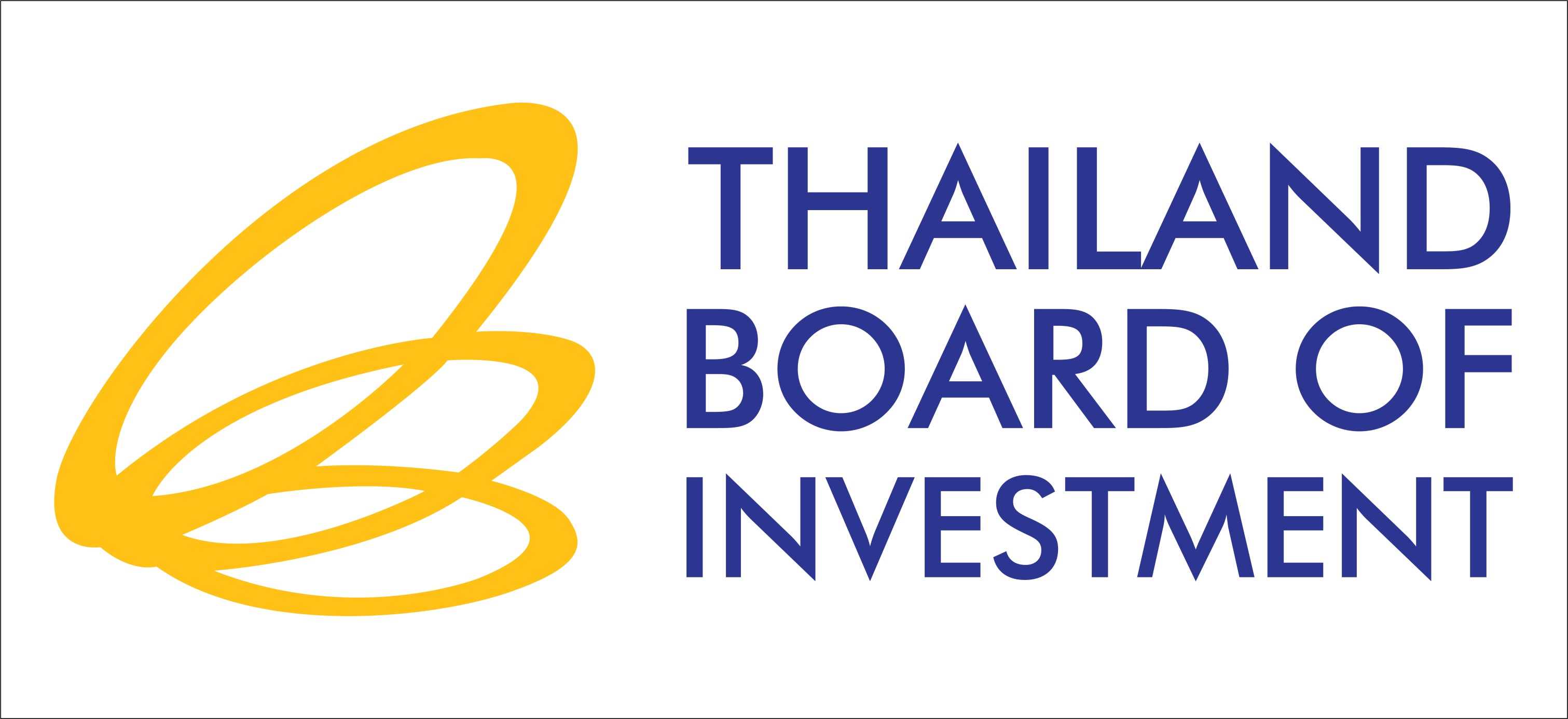Finance/policy interest rate
Finance/policy interest rate
Editorial staff
MPC voted 5:2 to maintain the policy rate at 2.5%
The Monetary Policy Committee voted 5 to 2 to maintain the policy rate at 2.50%.
Secretary of the Monetary Policy Committee (MPC) Piti Disyatat, announced the committee voted 5 to 2 to maintain the policy rate at 2.50 %. Two MPC members voted to cut the policy rate by 0.25 percentage point.
“The majority of the committee deems that the current policy interest rate is conducive to safeguarding macro-financial stability, and that the effectiveness of monetary policy on resolving structural impediments is limited,” Mr Piti said.

Secretary of the Monetary Policy Committee (MPC) Piti Disyatat
Most members thus voted to maintain the policy rate at this meeting, but will monitor uncertainties of economic factors going forward. Two members voted to cut the policy rate by 0.25 percentage point to reflect Thailand’s lower potential growth as a result of structural challenges and to partly alleviate debt-servicing burden of borrowers. The Thai economy in the second half of 2023 slowed more than anticipated due to sluggish export recovery, delayed government budget disbursement, and higher-than- normal inventories.
The aforementioned downside factors are expected to subside this year, causing the Thai economy to grow at 2.6 % and 3.0 % in 2024 and 2025, respectively, faster relative to the previous year.
Economic expansion is supported by an improvement in the tourism outlook in terms of both the number of foreign tourists and spending per head; continued expansion of private consumption despite having been moderating from high growth last year; and an acceleration of public expenditure in the remainder of the year.
In contrast, exports of goods are anticipated to recover only gradually in the second half of this year. The decline in Thai economic growth after the COVID-19 pandemic reflects the impact of structural headwinds on the economy’s potential.
Headline inflation is projected at 0.6% and 1.3% in 2024 and 2025, respectively. Meanwhile, core inflation is forecasted to be at 0.6% and 0.9% in 2024 and 2025, respectively.
The downward revision is attributed to the decline in prices of certain raw food items due to excess supply and the decrease in energy prices due to an extension of government subsidies, while the recent negative inflation readings excluding subsidies remained positive. Inflation is anticipated to return to target by the end of this year.
In the period ahead, the effect of geopolitical tensions and government subsidies on energy prices should be monitored. Overall financial conditions remain stable.
The costs of private sector funding via commercial banks and corporate bond markets remain approximately unchanged. Total loans outstanding of businesses and households expand at a slower pace due to debt repayments.
Nevertheless, the amount of new loans granted is still growing, indicating overall normal credit functioning. However, some groups of SMEs and low-income households face tighter credit conditions due to financial access difficulties and debt serviceability deterioration due to a slower rebound in income. This is consistent with the outstanding amount of non-performing loans (NPLs) which is expected to gradually pick up, and the likelihood of a surge in non-performing loans is limited.
The committee expresses concern on elevated household debt and recognizes the importance of debt deleveraging, which will help mitigate vulnerabilities in the macro and financial system in the long term.
Moreover, the committee assesses that the effectiveness of monetary policy on resolving financial access issues is limited.
10 April 2024
Viewed 175 time
 EN
EN 




